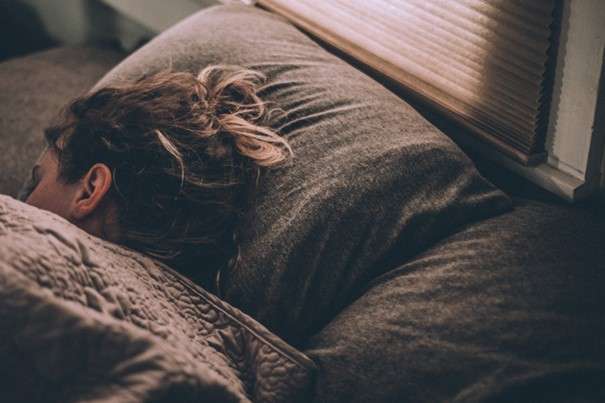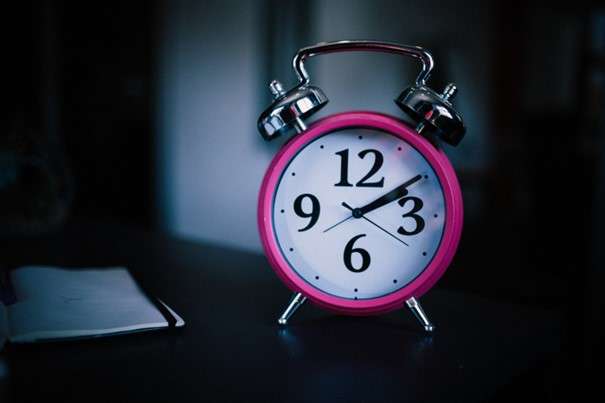Sleep disorders: What sufferers can do about it
External editorial

Sleep disorders can be very distressing - fortunately, there are many ways to combat them today.
Sleeping pills: a helpful approach?
Today, there is a whole range of medicines that can have a helpful effect on sleep disorders. These can be divided into two groups:
1. sleeping pills on a natural basis.
This group mainly includes phytotherapeutics such as valerian preparations or remedies based on passion flowers (e.g. Lioran or Pascolflair). Also Antihistaminika are offered prescription-free for the stabilization. In addition, there are appropriate sleeping teas with calming herbs and remedies based on melatonin.
The effectiveness of some of these means is examined straight in a current study of the University of Mainz. At the moment the results are still pending. A 2018 study by Stiftung Warentest concluded that many over-the-counter alternatives are not suitable. Only antihistamines were able to achieve an appropriate effect in the test, at least in the short term.
2. synthetic-based sleeping pills
In addition, the doctor can also prescribe synthetic sleeping pills in acute cases, which dock to certain receptors in the brain and thus calm the nerve cells. Here, Stiftung Warentest comes to a more positive conclusion. Nevertheless, even such drugs should not be taken permanently.
Sleeping pills can help initiatively in the case of short-term complaints or after long phases of insomnia to get used to a sleep rhythm again. As a rule, however, it is clearly more important to treat the cause of the sleep disorders.
Fighting the causes of sleep disorders
Sleep disorders are basically divided into two different groups:
1. primary sleep disorders.
These are sleep disorders to which no causal underlying disease can be assigned. They often develop from inner restlessness, stress or an unfavorable sleep environment. Here, relaxation techniques such as meditation, a sustained fight against the causes of stress (if possible) and an improvement of the sleep environment can help.
2. secondary sleep disorders
This category of sleep disorders is due to a corresponding underlying disease. Among the possible causes are the following diseases:
- Depression
- Anxiety disorders
- Psychoses
- Schizophrenia
- Chronic pain disorders
- Thyroid disorders
- Restless Legs Syndrome
- Parkinson's disease
- Various cancers
- Dementia
- Multiple Sclerosis
- Sleep apnea
Taking medications such as antibiotics, antidepressants or blood pressure drugs can also cause sufferers to suffer from sleep disorders.
In these cases, it is particularly important to treat the underlying diseases in consultation with the doctor. In addition, it should be tested whether the administration of other drugs from the same group can solve the sleep problem. If nothing leads to an improvement, a medically supervised intake of sleeping pills may eventually become necessary.
Eliminating primary sleep disorders: What sufferers can do
If the sleep disorders are not associated with any underlying disease, sufferers can try to improve their condition by making some changes. These include:
1. develop routines.
People are creatures of habit. For this reason, going to sleep at the same time every night can help. In addition, an evening routine helps to slowly adjust the body to sleep. So if you do the same things over and over again before bed, you get your own brain used to the routine and can fall asleep more easily.
2. adjust sleep length to your own needs
Even though it is often said that 7-8 hours of sleep per night is optimal, everyone has their own sleep rhythm. For example, when there were hardly any artificial light sources, people's sleep rhythm was quite different: Two sleep phases with an interruption of 1-3 hours. According to a study, we would still sleep like this today. For this reason, it is important to determine one's personal sleep requirements and, if possible, to adjust one's own sleep behavior accordingly. Because: Both too little and too much sleep can lead to problems.
3. at most a short nap at midday
A long midday nap can mean that we are not yet tired again in the evening. For this reason, it should be a short nap of 20-30 minutes at noon at most. This can also be restorative. Another advantage is that waking up is much easier because deep sleep has not yet taken place.
4. create a pleasant sleeping environment
The personal sleep environment also contributes a lot to our sleep quality. The following aspects are particularly important:
- Light: Strong light sources in the bedroom can cause real problems. When we go to rest, the body produces the hormone melatonin. However, light ensures that the production of melatonin is inhibited. Closed eyes do not protect us from this, by the way, because our eyelids filter light only very weakly. For this reason, televisions and smartphones have no place in the bedroom. If light sources cannot be switched off from the outside, a sleeping mask may help.
- Temperature: A well-tempered room also helps to combat sleep disorders. If it is too cold or too warm, this can disturb our sleep.
- Sleeping utensils: uncomfortable pillows and mattresses can also cause poor sleeping posture, which in turn affects sleep recovery. Here, a professional consultation helps to be able to create the right sleeping environment in the end.
5. do not eat too late
If you eat shortly before going to bed, you ensure that your body is busy digesting. Especially with heavy food, this can disturb our sleep and make us lie awake longer.

A good sleep rhythm and an adjusted amount of sleep help to accustom the body to good sleep.
Sleep disorders: There are many countermeasures
In conclusion, there are many ways to treat emerging sleep disorders today. Medication does not have to be the first step. First of all, it is important to clarify the causes. If an underlying disease is responsible, the first step is to combat it. Otherwise, it can help to combat stress, create sleep routines and take advantage of some opportunities to improve sleep hygiene.
Sources
- Müdes Deutschland: Schlafstörungen steigen deutlich an (DAK-Gesundheitsreport 2017)
- Studie der Uni Mainz zu rezeptfreien Schlafmitteln (2022): Forschungsprojekt "Rezeptfreie Schlafmittel"
- Schlafmittel im Test: Welche wirklich müde machen. (Stiftung Warentest 2018)
- Schlafmittel: Mit Medikamenten in den Schlaf. (betten.de)
- Wehr T. A. (1992). In short photoperiods, human sleep is biphasic. Journal of sleep research, 1(2), 103–107.
Kurt Weber
Last updated on 16.08.2022
Your personal medication assistant
Browse our extensive database of medications from A-Z, including effects, side effects, and dosage.
All active ingredients with their effects, applications, and side effects, as well as the medications they are contained in.
Symptoms, causes, and treatments for common diseases and injuries.
The presented content does not replace the original package insert of the medication, especially regarding the dosage and effects of individual products. We cannot assume liability for the accuracy of the data, as the data has been partially converted automatically. Always consult a doctor for diagnoses and other health-related questions.
© medikamio